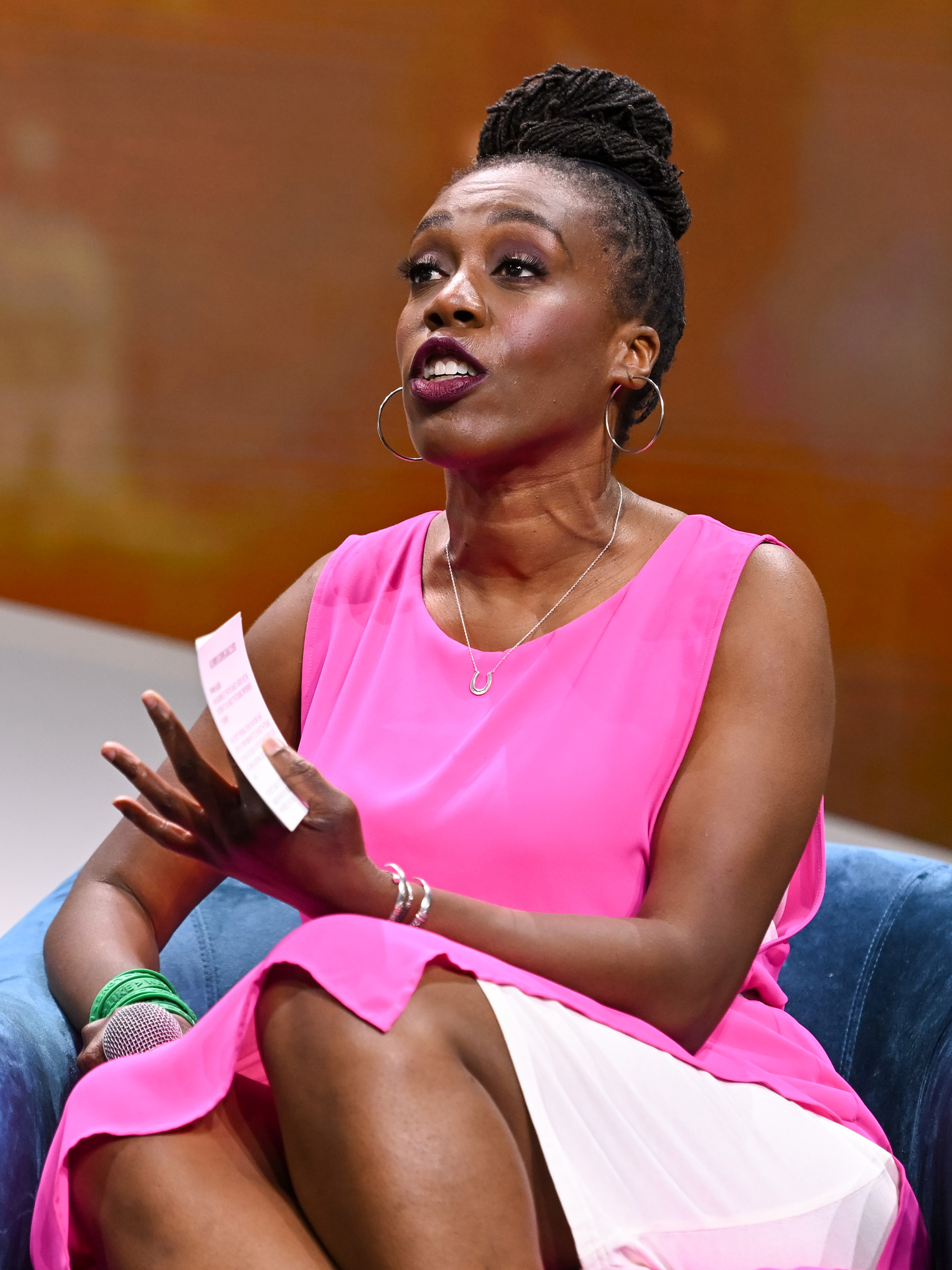A poor financial decision is something you can come back from.
And if it’s something you’ve experienced—be it overspending, blowing your entire savings or getting scammed—you’re not alone. A Credit Karma survey revealed that 76% of respondents made a financial mistake in 2022 while another 35% reported that they developed a bad habit within the same year.
Money issues are common, and so is the guilt surrounding it. Sweet July sat down with financial educator Tiffany Aliche and wealth management executive Melinda Hightower at the AC3 Conference in Atlanta to tackle this taboo topic, discuss the effects of financial shame on women, specifically, and explore how to overcome its limitations.
The Effects of Financial Shame
Imagine having your bank statements read aloud in front of your peers—every transfer from your emergency fund to buy non-emergency items and every swipe for those “self-care” shopping sprees.
That feeling is described as financial or money shame. It’s when you feel embarrassed, disappointed, overwhelmed, and even angry when it comes to your finances. But it doesn’t stop at just a feeling. Financial shame also manifests into actions like information avoidance. This is where you may steer clear of your banking app or scroll past finance tips on social media.
Over time what begins as just a feeling, transforms into an obstacle that makes it harder for you to fix your finances. Melinda Hightower, managing director and head of multicultural strategic client segments at UBS describes how this shame specifically affects women.
“I think shame can lead women to be financially frozen,” says Hightower. “And, I think with that shame it becomes a barrier to learning because you don’t want to acknowledge where you are and that negative relationship with money becomes self-repeating.”
This viewpoint is backed by a study referring to this psychology as “information threat theory,” wherein “individuals may therefore disengage from their financial situation to escape from the likely stigmatization resulting from others becoming aware of their financial troubles.”
In short, many fear their money habits make them bad or inadequate people, which is far from the truth.
Overcoming Financial Shame
Your financial situation didn’t happen overnight so you shouldn’t expect it will be resolved overnight. One of the first steps on this journey is identifying exactly what you’re struggling with financially.
“If you can’t figure out how to fix it, then the only way to break shame is to give voice to it,” says financial educator Tiffany Aliche. “That’s one of the number one things that I do when we’re starting any sort of financial education program. Give voice to the very thing that you’re afraid of.”
Aliche’s Live Richer community helps eliminate financial shame by providing judgment-free space for women to voice their financial struggles, gain support, and obtain accountability. By finding community, you can feel empowered to tackle your finances because you have people backing you who identify with your situation.
It’s also important to be open and honest with yourself about your current financial situation. You don’t have to broadcast it to the world but you do need a complete understanding of what’s happening with your money. This includes the bad, the embarrassing, and surprisingly even the good.
“One of the things that I always have my clients do is show me the good, the bad and the ugly, and we always start with one from each category,” says Hightower. “But mainly the good. What is one thing you are proud of? It could be the fact that you’ve always paid this one bill on time.”
Resources For Fixing Your Finances
Getting on track financially sometimes feels like a catch-22. Your money is looking funny and you need help, but all the help you can find costs money that you don’t have. For some, this is the sole reason they’ve avoided reaching out to an accountant or financial advisor.
So, what are your options?
Aliche and Hightower provided three free resources to help you get your finances together.
1. Ask your job for any finance-related resources.
Most jobs have Employee Assistance Programs that offer free access to financial advisors, coaches, and more. These are usually included in your benefits package but you can always reach out to your HR rep for more information.
2. Get a credit counselor through the National Foundation for Credit Counseling.
The total credit card debt in America has surpassed one trillion dollars and is a sore spot for most. Organizations like the National Foundation for Credit Counseling provide free credit counseling to help you develop a solid plan for repaying your debt.
3. Develop a different mindset surrounding wealth and money.
This may not be a physical resource, but it’s very important for you to understand your own definition of wealth. Hustling for someone else’s idea of wealth only leads to fatigue and more money trouble. You have to create your own vision and build your budget around that.
“Behavioral science shows that being rich is a mindset where you need more,” says Aliche. “And it’s really based around spending behavior, which can be self-destructive. On the other hand, wealth is having enough and that’s unique to everyone. The key is to figure out what’s enough for you.”







